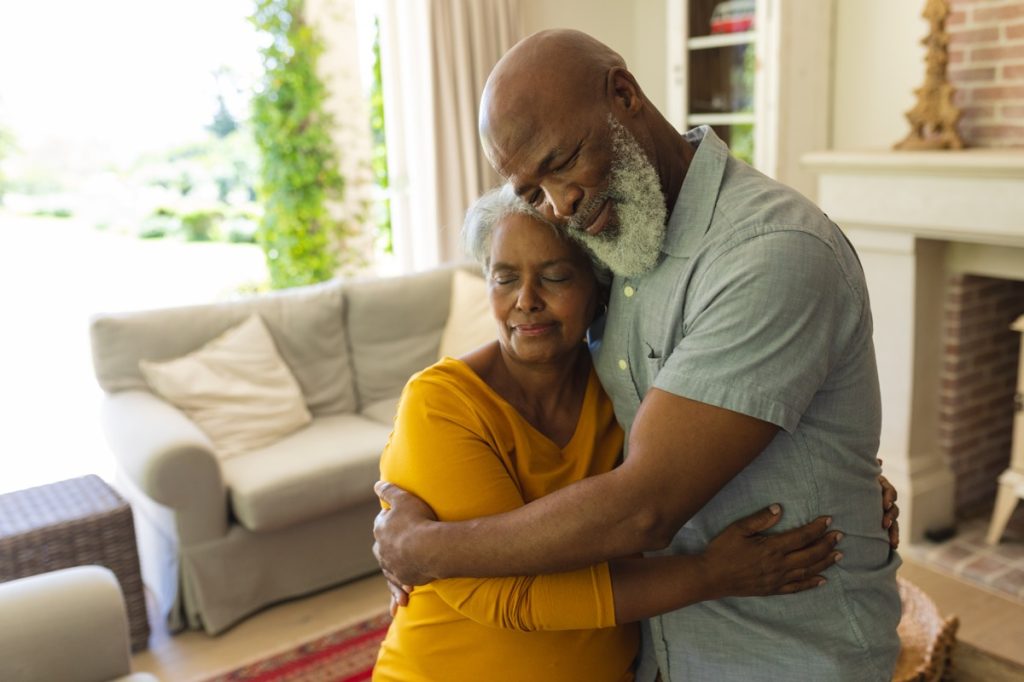5 Surprising Things That Happen at Retirement Communities, According to Experts
These pointers can help prepare you for any potential post-career move.

A comfortable retirement is a long-term goal shared by most people—especially if they can reach it a little early. But once people have made the life-changing decision to step away from their careers, the exact path forward can become less clear. While some will head to a more comfortable climate or relocate to be closer to family and loved ones, others may opt to move into communities designed specifically for older adults that can offer the kind of lifestyle they're looking for with the support they'll need. And even though a bit of research shows there are plenty of options that can cater to different requirements, there are some aspects of retirement community living that potential residents may not know to expect. Read on to find out what you should be prepared for before making the transition.
READ THIS NEXT: The 5 Best Retirement Communities in the U.S.
1
It might not be as expensive as you think.

Preparing for retirement always requires saving and investing the right way to make sure you'll be able to live comfortably later in life. But if you're concerned that the privilege of living in a retirement community may be above your budget, experts say there are still ways to make your desired living arrangement work.
"It's easy to worry about the cost of a brand-new boutique senior community with state-of-the-art amenities, but you may be pleasantly surprised. It's possible to find affordable senior communities," William Rivers, founder and senior editor of Senior Strong, tells Best Life. "A senior community may be more affordable than living at home if you consider residential costs, including mortgage, property taxes, in-home care, repairs, insurance, and home maintenance."
You might also have some assets at your disposal that can make the move more attainable. "Selling a home, obtaining a reverse mortgage, and converting life insurance policies into long-term care plans are all options to consider to finance life in a senior community. If you need more ideas, you can consult a financial advisor," Rivers says.
And even if a specific property feels out of reach, there may still be options available that fit your budget. "Senior communities offer a wide variety of units, from studio apartments to two-bedroom apartments. The cost of your apartment will depend on the floor plan you select as well as the level of care you require," he says. "To find out the exact cost of living in a senior living community, you should consider taking a tour and asking about floor plans and services."
2
You won't necessarily have less living space.

No matter what age you are when you retire, it's not uncommon for some people to trade in their larger homes for something more manageable after their children have grown up and moved out. But if you're considering moving to a retirement community, you might be surprised to find that your new living space won't always feel likes it's on the small side.
"Residents often think they are 'downsizing,' but once they are settled in, they realize they upsized!" says Sarah Stel, executive director of Saratoga Retirement Community in Saratoga, California. "Their unit is their own, but they gain the entire community. I once had a resident say, 'It's like I moved into a mansion!'"
READ THIS NEXT: This Is How Much Money You Need to Retire in Your State, According to Data.
3
You can end up saving some money when you decide to move in.

Finding the right retirement community can often come down to budget and expenses. Of course, most realize that moving into a robust facility with amenities and services can come with a seemingly steep price tag. But while these numbers will look different for each person, experts say some aspects of making the move can save residents a little money.
"Life Plan Communities can be more affordable than you think," says Tom Dorough, executive director of Mirabella at Arizona State University (ASU) in Tempe, Arizona. "Many residents don't realize that they can take a tax deduction from a portion of the entry fee paid in the first year as well as a percentage of the monthly fees paid each year as prepaid medical expenses. Keep in mind there is a threshold of 10 percent of adjusted gross income for medical expenses, but it can result in a substantial tax deduction the year you pay the entrance fee."
4
Some residents find love after they move in.

No matter what age you may be, sparks can still fly when you meet the right person. And according to experts, retirement communities can be the jumping-off point for many late-in-life couples who may never have expected to settle down.
"Who says you can't find a new boyfriend or girlfriend after age 80?! We see residents fall in love at all ages after moving in and meeting their other half," says Stel. "People would be surprised how many relationships blossom in retirement communities. Marriages are not uncommon!"
For more life advice delivered straight to your inbox, sign up for our daily newsletter.
5
Couples can often find a way to stay together.

One of the big perks of retirement is getting to spend more time with the person you love most. But unfortunately, growing older together can also come with sudden health issues that require a special level of care or attention. If you're thinking long-term, experts say picking the right retirement community early on can help ensure that each person in a relationship can get what they need out of the move.
"Senior living communities help keep couples together, despite their different ages or requirements," says Rivers. "Couples can live together in a senior community while receiving support and care. A couple can choose a room size and amenities that are right for them from a variety of one- and two-bedroom apartments available in most communities."
"It's possible to relocate with your spouse to a community offering assisted living, independent living, and memory care services so that you can face the future together while getting the support you need," Rivers adds. "Choosing a retirement community with multiple levels of service is a sure way to ensure you have individualized assistance should either of you need it in the future—even if you are both in good health today."
Best Life offers the most up-to-date financial information from top experts and the latest news and research, but our content is not meant to be a substitute for professional guidance. When it comes to the money you're spending, saving, or investing, always consult your financial advisor directly.





















